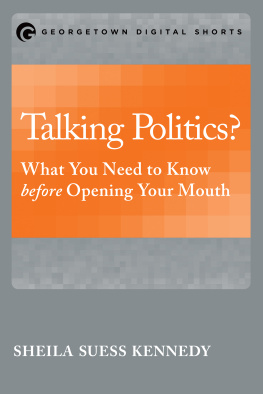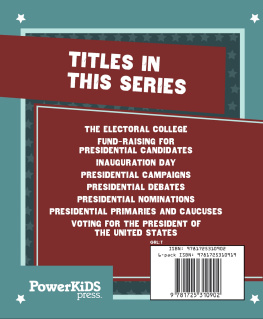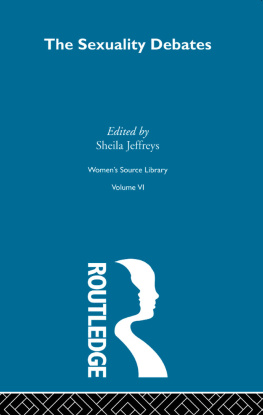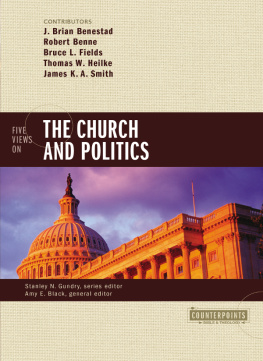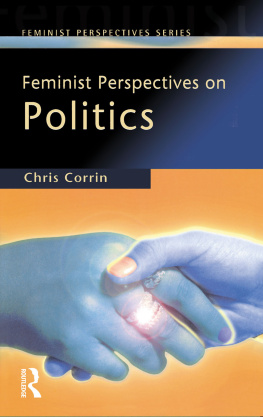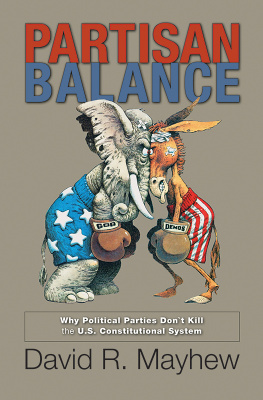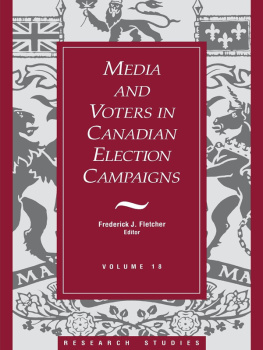Talking Politics?
What You Need to Know before
Opening Your Mouth
Other Titles of Interest
Charitable Choice at Work: Evaluating Faith-Based
Job Programs in the States
Sheila Suess Kennedy and Wolfgang Bielefeld
The Declaration of Independence and the
Constitution of the United States of America
Preface by Cass R. Sunstein
Pathways of Power: The Dynamics of National Policymaking
Timothy J. Conlan, Paul L. Posner, and David R. Beam
Talking Politics?
What You Need to Know before
Opening Your Mouth
Sheila Suess Kennedy
2014 Georgetown University Press. All rights reserved. No part of this book may be reproduced or utilized in any form or by any means, electronic or mechanical, including photocopying and recording, or by any information storage and retrieval system, without permission in writing from the publisher.
Join our mailing list and get updates on new releases and special offers from Georgetown University Press.
Contents
Introduction
AS DANIEL PATRICK MOYNIHAN famously observed, we are all entitled to our own opinions but not to our own facts. Arguments based on manufactured histories or distorted realities are intellectually dishonest and ultimately unproductiveand they are particularly destructive in an era when there is no universally trusted mainstream media to correct spin, misrepresentations, and outright lies.
This brief publication identifies some of the most common areas of confusion or misunderstandingthose distortions of accepted history, economics, and science that seem most often to characterize our contemporary political / social argumentsand distinguishes between facts that have been documented and agreed to by responsible people of all ideological perspectives and the different conclusions and interpretations that may be drawn from those facts. To use an analogy from the courtroom, two sides to a conflict may stipulate to what happened but then proceed to argue in good faith about what those agreed-to stipulations really tell us.
Why do we say that agreement on definitions and documented facts is important? Take the recent debates about the Affordable Care Actaka Obamacareas an example. People may have very different opinions about the wisdom of the policy choices involved, but a decision to repeal, implement, or amend the act depends upon agreement about what it actually says and does. If opposition to the policy is based upon death panels that dont exist, or if its defense is based upon an insistence that the individual mandate isnt government coercion, the likelihood of reasoned discussion let alone agreement on policy changesdisappears.
Or take the ongoing battles over religion in the nations schools. There are genuine arguments to be made about the proper application of the Establishment Clause in the context of public education. But just as we cant have those reasoned disputes with people who insist that the First Amendment doesnt require separation of church and state, we cannot have productive conversations with people who insist that all the Founders were Deists who believed religion was unimportant.
Basing ones arguments on verifiable fact and accepted history actually helps people make more persuasive cases for their own points of view. We all encounter people who have a legitimate point worth considering, but whobecause they are basing their argument on erroneous facts, or demonstrating a lack of understanding of important basic conceptsget dismissed out of hand. Credibility requires verifiable evidence. You might want to use that perfect quote from Thomas Jefferson that you saw on the internet, but if it is bogus, youve just undermined your own position. Defending alternate realities is like arguing about whether a fork is a spoonit doesnt get you any closer to a useful resolution.
This brief work contains basic facts about the US Constitution, economic concepts and systems, and the nature of science and the scientific method that every citizen should knowfacts and definitions that can serve as solid starting points from which you can build more persuasive arguments for your preferred policies, whatever they may be.
CHAPTER 1
What Everyone Should Know about the Constitution and American Legal System
What Is Government?
THIS MAY SEEM like a silly question, but in an age of outsourcing and privatization, its often harder to identify government than you might think. For example, tax dollars pay the salaries of more than 18 million people employed by private companies or nonprofit organizations under contracts with government agencies. Are they part of the government? It depends.
Governments were originally defined as entities having the exclusive right to exercise legitimate coercive power. They were established to keep the peace and control the kinds of behaviors that a given society believes to be inconsistent with public order. It is a truism that a government strong enough to protect us is a government strong enough to oppress us, and some of our most acrimonious debates arise from concerns that by giving the government enough authority to do particular jobs, we may be giving it the power to unduly limit our liberties.
The governmentsometimes referred to as the state (not to be confused with states like Indiana or California) or the public sector (not to be confused with the public square, a very different concept)is also a mechanism through which we citizens collectively do things that would be difficult or impossible to do individually, such as issue currency, defend the nations borders, clean up waterways, or pave roads. There are two nongovernmental sectors: nonprofit and voluntary organizations or associations (sometimes called civil society or the nonprofit sector), and private persons, families, and businesses (the private sector).
The role of the government has grown significantly over the years, and thanks to new agencies performing new tasks and the growth of public-private partnerships of various kinds, its presence isnt always obvious. But heres a good rule of thumb: If an agency is managed by someone weve elected, or by someone appointed by someone weve elected, and if it is financed with our tax dollars, its probably part of the government.
Why It Matters
In the United States, it is particularly important that we know the government when we see it because our constitutional system is largely based on a concept of negative liberty. The Founders believed that individual rights do not come from government; rather, they are natural. We are entitled to certain rights simply by virtue of being human (thus the term human rights), and the government must respect and protect those rights. The US Bill of Rights is essentially a list of things that the governmentthe stateis forbidden to do. For example, the state cannot prescribe our religious or political beliefs, search us without probable cause, or censor our expressionand it is forbidden from doing these things even when popular majorities favor such actions.
Those limitations dont apply to private, nongovernmental actors. The government cant control what you read, for example, but while you were growing up, your mother could. The government cant tell you what to say but (at least at work) your boss can. Your public (government) school cant make you say a prayer, but a private or parochial school can. The doctrine known as state action is shorthand for these limits on government intrusions. If the government hasnt acted, or isnt involved, neither is the Constitution. Private actors can break other laws, like civil rights laws, but

